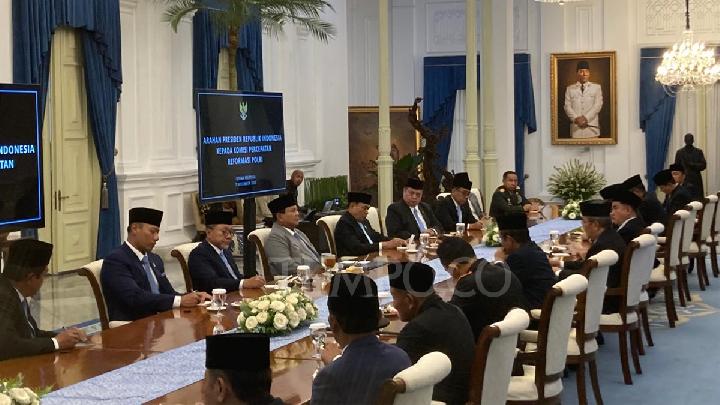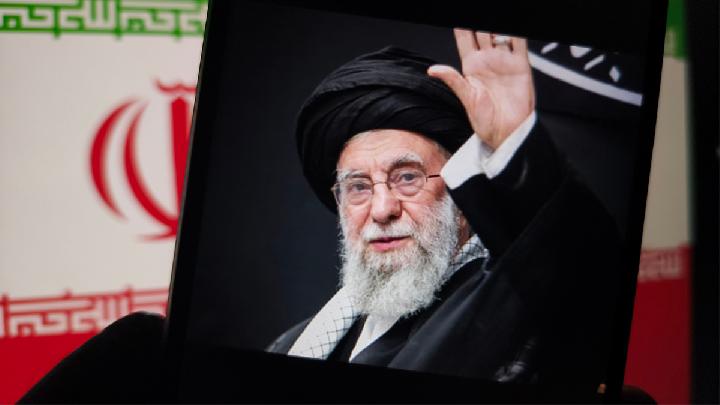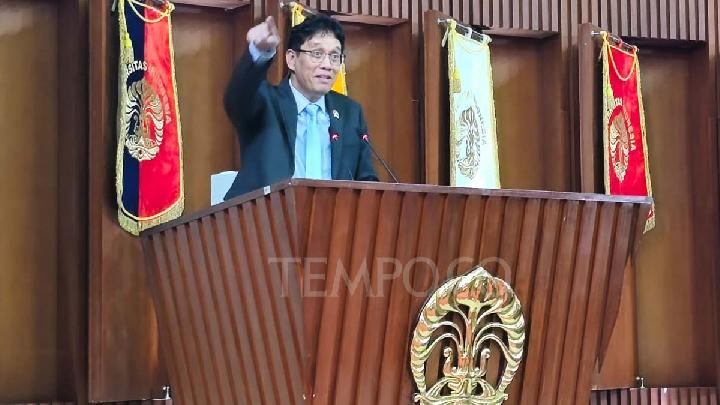TEMPO.CO, Jakarta - In this modern era, the younger generation is increasingly prioritizing the balance between work and personal life or work-life balance. It is now considered a key to maintaining the balance between mental health, happiness, and productivity. Many believe that success does not have to come at the expense of rest and family time.
However, this view does not apply to a number of world figures who consider relentless hard work as the main key to success. They openly reject the modern idea of work-life balance and prefer total dedication to achieve big goals.
The following list of eight world figures serves as a real example that ambition and perseverance often outweigh comfort in producing success:
1. Sanae Takaichi
The first female Prime Minister of Japan openly rejects the concept of work-life balance. In her first speech as party leader, Sanae Takaichi emphasized the importance of relentless dedication and perseverance, and rejected the modern idea of balancing work and personal life.
"I will keep my promise. We can only rebuild this country by uniting all generations and involving everyone. Because our numbers are small, I ask everyone to work; work hard like a horse. I myself will put aside the idea of work-life balance. I will work, work, work, work, and work," Takaichi said to ANI, as quoted from Times of India.
Amid the changing work culture in Japan, Takaichi calls for a return to the traditional ethos of hard work as a pillar of progress. In addition, national strength can only be achieved through discipline and hard work; the speech marks the return of Japan's traditional work ethos and a strong commitment to economic revival.
2. Shah Rukh Khan
Bollywood actor Shah Rukh Khan, who successfully built his career from scratch, is known for his unique life principle, "Aaram haraam hai" - which means "rest is a sin." For Khan, success does not come easy. He believes that time should not be spent relaxing if one wants to reach the peak.
In various interviews, Shah Rukh Khan revealed the sacrifices he made to achieve success. Khan shared that the journey to the top of the entertainment industry demanded sacrificing personal time and rest hours.
"If you want to succeed, don't eat, don't sleep, don't rest, don't relax," he said, sharing his success mantra in an interview in 2022 with Aaj Tak. Therefore, his spirit of discipline and sacrifice serves as proof that great success demands unusual dedication.
3. Indra Nooyi
Former PepsiCo CEO from India-America, Indra Nooyi, is known as an inspirational figure in the global business world. In her viral interview, she emphasized that perfect work-life balance is just a myth. According to Nooyi, the key to success is not absolute balance, but the ability to prioritize wisely.
Nooyi shared a personal story when she had to fulfill her daughter's request to bring a cake to school amid a busy schedule. With no time to bake, Nooyi ordered a cake from the office cafeteria and wrapped it in aluminum foil to make it look homemade. As a result, everyone liked the cake and her daughter felt proud.
From that experience, she stressed that women are often required to be "superhumans" who can make everything work, even without perfect balance. Therefore, success can come from the ability to balance all priorities.
4. Jeff Bezos
Amazon founder Jeff Bezos has a different view on work-life balance. Bezos rejects the term work-life balance and prefers the concept of work-life harmony, the harmony between work and personal life. According to him, both should complement each other so that a person can be productive and happy, instead of being in conflict.
 Shah Rukh Khan attending the Met Gala 2025 at the Metropolitan Museum of Art, New York, United States, Monday, May 5, 2025. Photo: Instagram/@iamsrk
Shah Rukh Khan attending the Met Gala 2025 at the Metropolitan Museum of Art, New York, United States, Monday, May 5, 2025. Photo: Instagram/@iamsrk
5. Elon Musk
Tesla and SpaceX CEO, Elon Musk, is known for his extreme lifestyle, both in personal and work matters. Musk has often urged people to work much longer than the standard for most people in the past.
Musk once stated his view on Twitter in 2018 that anyone who wants to achieve great success should work 80 to 100 hours per week. According to him, no one can change the world by working just 40 hours a week, showing his rejection of the traditional work-life balance concept.
6. Narayana Murthy
One of the founders of Infosys, Narayana Murthy, emphasizes the importance of working up to 70 hours per week to achieve progress. His view has raised controversy, but Murthy believes that high dedication is the key to India's overall progress.
Murthy once shared his own experience, working more than 14 hours a day for six and a half days a week. According to him, for India to compete globally, the society must be ready to work hard and consistently, because even the smartest individuals will not succeed without sustained effort.
7. Jack Ma
Chinese billionaire and founder of Alibaba, Jack Ma, is known for supporting the long working hours popular in his country. In 2019, he promoted the "996" work system, from 9 am to 9 pm six days a week, as the path for young workers to achieve success.
Although he later envisioned that artificial intelligence (AI) could shorten working hours, at the time Ma believed that a 12-hour workday was important for growth. His statement sparked debates about work-life balance, as many criticized this extreme work schedule as unsustainable and potentially detrimental to long-term well-being.
8. Mark Cuban
Billionaire entrepreneur and former Shark Tank star, Mark Cuban, argues that there is no concept of balance for those truly committed to success. He emphasizes that anyone wishing to dominate the game must be ready to compete, as there will always be others working harder to surpass you. His view underscores total dedication as the key to achieving great accomplishments.
Aprilian Rodo Rizky contributed to this article.
Editor's Choice: 10 Youngest World Leaders, Young and Charismatic
Click here to get the latest news updates from Tempo on Google News


















































